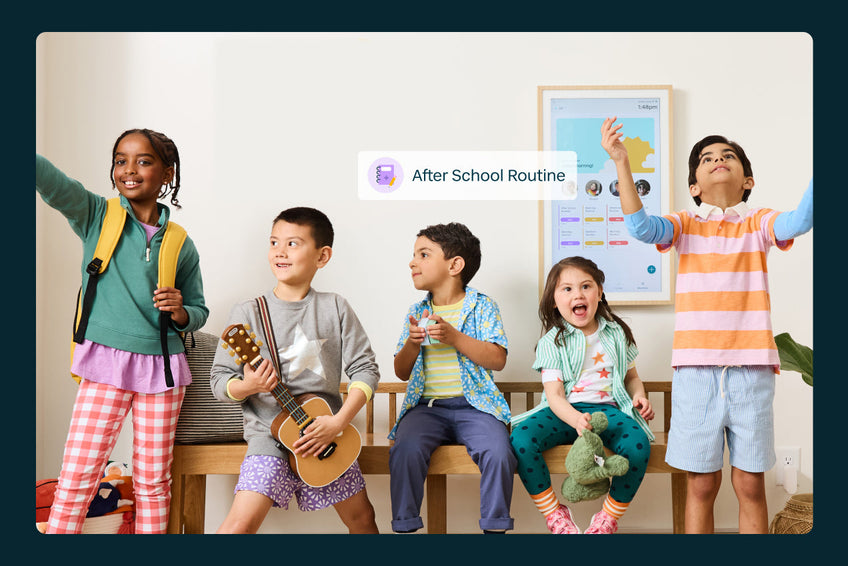Create healthy habits, minus the nagging.
Why do kids need routines? For the same reason adults can benefit from them. Routines develop self-discipline while lending a sense of security. The impact of daily routines has been widely researched.
The benefits of fostering a series of events range in scope from an immediate sense of calm to a better sense of time management as an adult. At Hearth, we define routines as a collection of recurring to-dos for a specific time and person in the family. Our hope is that by creating routines, kids might experience ownership over their daily and weekly tasks, while parents easily manage and track their habits and to-dos. In the end, the whole family feels more accomplished. When we built Hearth Routines, we wanted to create a way for parents to celebrate their kids’ ownership and independence along their developmental journey. There’s a shortage of tools that empower children with agency to complete their tasks without parental support. Bypassing painful negotiations and nagging, Hearth enables independence by streamlining routines for both parents and kids. Surfaced as groups of to-dos, Hearth Routines presents tasks to children with the capability to decide where they begin.

Why Routines Matter
By investing in routines, we’re investing in healthy social emotional development in early childhood. Kids with regular routines build self-regulation, which according to Child Mind Institute, is “the ability to manage your emotions and behavior in accordance with the demands of the situation.” Learning to regulate feelings and behaviors means that children have the skills to experience the everyday without feeling overwhelmed. New expectations, stressors, and relational challenges can all be adapted to with a strong sense of self-regulation.
Children benefit from accessibility and predictability. Even for the most creative of young thinkers, structure is a safe, warm place for a child to explore their emotions and interests. Routines build a feeling of confidence and dependability for children. While getting ready for bed at the same time every night might feel convenient for your schedule, its benefits actually supersede the administrative. Children feel they can anchor their day according to these predetermined intervals. Accessibility comes when kids know what’s next. Participating in their daily routines—by helping to clear the dinner table or pack lunch for the next day—firmly plants them in the movement of the day.
Rituals and Relationships
Of course, routines are made all the more special by meaningful interruptions. Also known as rituals, these intentional pauses ease the edges around transitions. They mark the passing of time. They teach children that it’s important to celebrate the emotional resonance of a day of the week or a time of year. Rituals remind children that they’re not alone, that even in stressful times or uncharted chapters, their family is with them.
Relationships prove that children don’t need perfect, protected lives, just consistence, loving care from predictable parents. Building in time for focused attention amidst busy routines is essential for showing kids that they can count on you. By candidly sharing your own feelings in these moments of connection, parents can empower children to adopt healthy coping strategies when their own feelings come up.

3 Tips For Creating Routines That Work For Your Family
1. Attach a timeline to your routines.
Sick of the inevitable bedtime bad cop routine? When you align a certain time with your kids’ routines, including nighttime, it’s harder to make an emotion-based appeal. Start your wind down as early as dinner, which is ideally served at around the same time every night.
2. Use pictures for younger children.
If your kids are too young to read, that doesn’t mean they’re too young to benefit from a routine. Photograph representations of their budding rituals or use a drawing instead.
3. Give your kids a say.
We’re here to empower independence, after all. Hearth Routines allow kids to select what task they’d like to complete next, putting some of the responsibility of routine in their hands. Keep the discussion around routines open and full of questions on both sides




